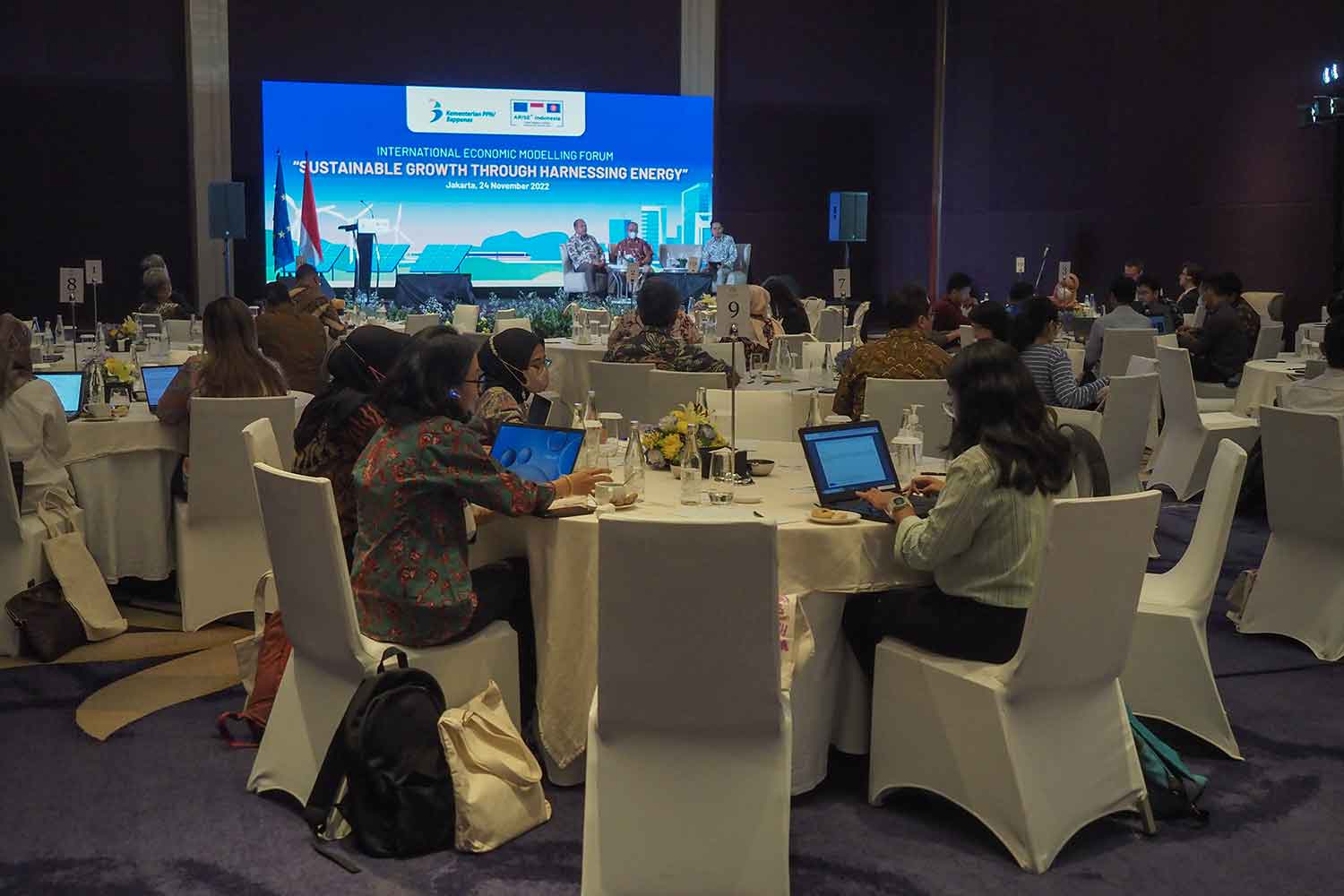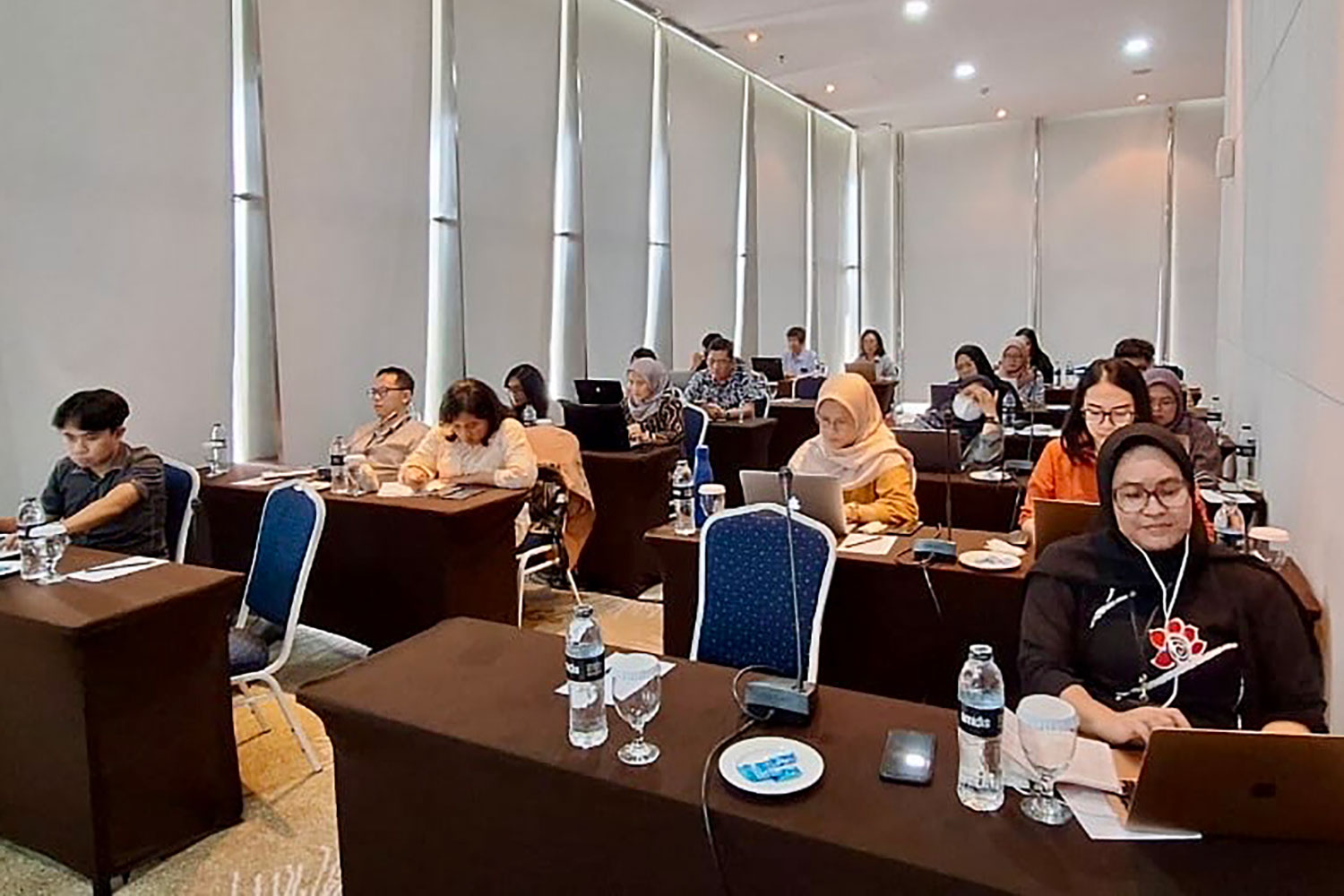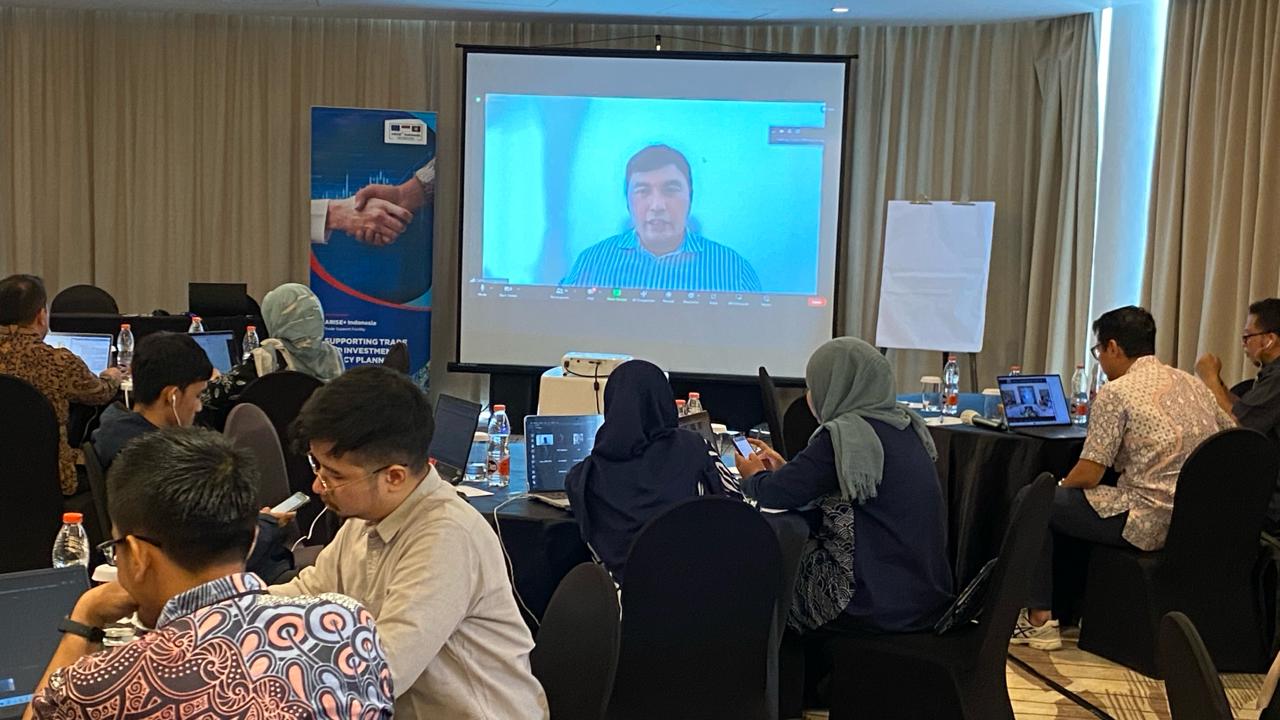Technical Assistance I

Jakarta, 24 November 2022 - The Ministry of National Development Planning/Bappenas, with support from the European Union-funded ARISE+ Indonesia, hosted an international economic modelling forum aiming to introduce the integrated economics-environmental analysis tool to assess the impact of the energy transition on macroeconomic indicators entitled "Sustainable Growth through Harnessing Energy" today. The policy tool was developed by Bappenas, with technical support from ARISE+ Indonesia and Oxford Economics.
The Forum officiated by the Deputy for Economic Affairs, Bappenas, Ms Amalia Adininggar Widyasanti, and the EU Ambassador to Indonesia, H.E. Vincent Piket, served as a platform to share knowledge and to discuss strategies towards a just and sustainable green economy transition.
In her opening remarks, the Deputy for Economic Affairs of Bappenas, Ms Amalia Adininggar Widyasanti, said, "As part of economic transformation to achieve Indonesian Vision 2045, Indonesia is committed to using energy transition to achieve a green economy and drive sustainable development. We hope the analytical tools will help the central and local governments incorporate energy transition plan in their respective economic planning and be optimally utilised."
Ms Widyasanti called for close collaboration and cooperation between the public and private sectors to overcome long-term and fundamental challenges.
Energy is the second largest source of carbon emission after Agriculture, Forestry and Land Use (AFOLU). Power generation, which is fuelled by coal for 58%, is an important source of carbon emissions. However, energy is also a potential sector in Indonesia that could boost economic growth. Based on the International Renewable Energy Agency (IRENA) data, Indonesia is on the list of top ten countries with the second highest employment in the world in the renewable energy sector, especially in liquid biofuels, with a total workforce of 560,000 people.
Indonesia has tremendous untapped potential in renewable energy sources ranging from geothermal, wind, solar, hydropower, biomass, and the ocean. However, less than 5% has been utilised. The attainment of a low-carbon economy require bold policy decisions that would gradually create a new paradigm for Indonesia towards its carbon neutrality path.
The EU Ambassador to Indonesia, H.E. Vincent Piket, said, "Indonesia’s leadership to accelerate the energy transition was recognised at the G20 Summit in Bali and I welcome the efforts from the government. Cleaner sources of energy will not only benefit Indonesian people but they also provide the building blocks towards a modern, competitive and resilient economy. Through the European Green deal, the EU shares this vision, and I am happy that the economic modelling tool developed by Bappenas with the technical assistance of ARISE+ Indonesia helps policymakers to steer economic development along more environmentally friendly pathways ."
According to H.E. Piket, now is the right time to transition energy amid high inflation, volatile food and energy prices and global slowdown to reduce reliance on energy imports and vulnerability to shocks.
The first session of the Forum examined Indonesia's current landscape in the energy sector, looked at challenges to reaching critical milestones and drew perspectives for building sustainable solutions towards the decarbonisation of energy, including through improved energy efficiency, with a particular focus on the manufacturing sector.
The second session discussed the costs and benefits of energy policies to improve planning and showcase the energy and emission modelling developed by Oxford Economics in collaboration with Bappenas, supported by ARISE+ Indonesia.
The Forum featured prominent speakers and panellists, namely:
- Edi Wibowo, Director of Bioenergy at the Ministry of Energy and Natural Resources
- Doddy Rahardi, Head of Standardization and Industrial Services Policy Agency at the Ministry of Industry
- Bishal Parajuli, Associate Programme Officer ,at the International Renewable Energy Agency (IRENA)
- Thomas Warnock, Senior Economist at the Oxford Economics
- Elliot Garside, Assistant Economist at the Oxford Economics
- I Made Teja, Head of Forestry and Environment Office, Bali
- Sujarwanto Dwiatmoko, Head of Energy and Mineral Resources Office, Central Java
- Fabby Tumiwa, Director of the Institute Essential Services Reform (IESR) Indonesia
- Tulus Abadi, Chairman of the Indonesian Consumers Organisation (YLKI)
- Miroslav Dijakovic, Deputy Head EuroCham Energy Working Group
The Forum brought together policymakers, project implementors, researchers, and the business community to look at implementation progress, exchange information on best practices and share lessons learnt. The Forum facilitated key players to continuously improve coordination and planning to accelerate the energy transition that minimises the trade-off of sustainable growth. It also served as an opportunity to raise awareness of the Green Economy Agenda and foster public support and involvement.




